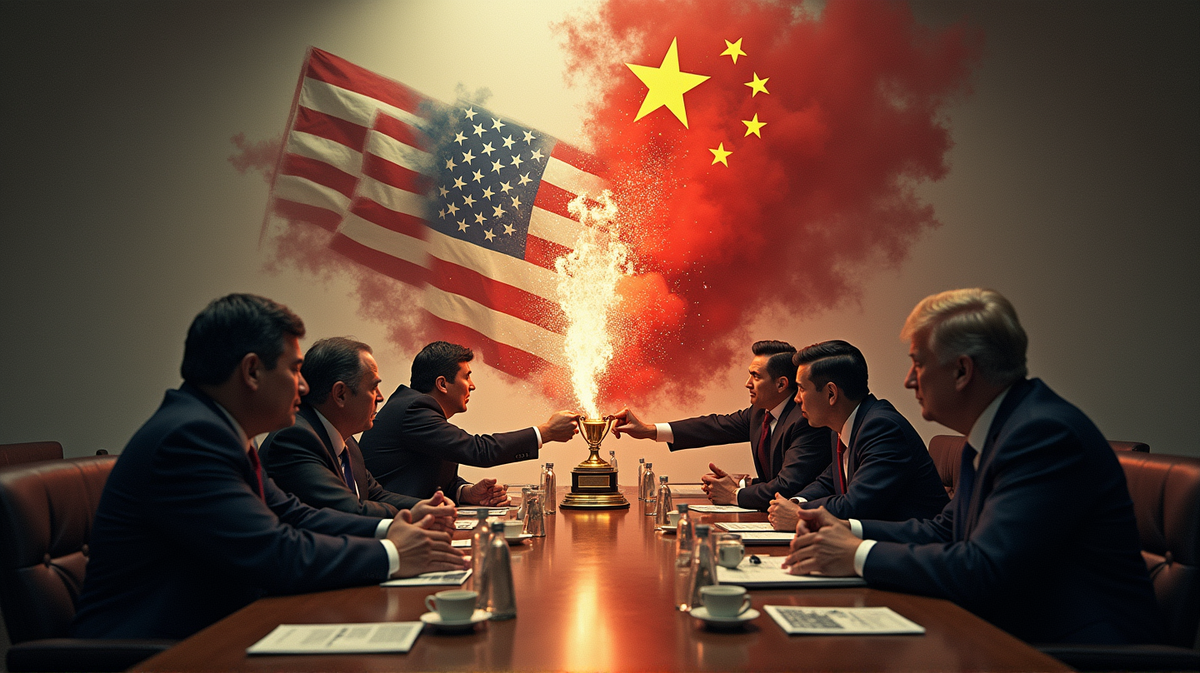Global Tensions Rise: U.S.-China Economic War Poised to Reshape Future Trade Relations
As the U.S.-China trade battle escalates, expert insights reveal potential irreversible effects on global economics, posing major challenges.

In a stirring interview with News.Az, Pavel Klachkov unfolds a new chapter in the U.S.-China economic confrontation, urging us to rethink the future of global trade. With rising tariffs and strategic maneuvers, many ponder whether we’re witnessing economic decoupling or perhaps something even more profound. According to News.az, this divide between the superpowers is more than transactional; it’s a question of strategic dominance, with each side unwilling to relinquish its global standing.
Escalation into Economic Decoupling
As the economic titans, China and the United States, ratchet up their respective stances, the possibility of a complete breakdown in trade relations looms large. Klachkov elaborates on how the U.S. is attempting to rally a coalition, offering favorable terms to countries who align against China, thereby predicting reduced global trade volumes in the short term. Meanwhile, tariffs soar to unprecedented levels—145% on Chinese imports and 125% on American goods, threatening a full-scale trade decline. The rhetoric intensifies, but is it mere posturing, or will it culminate in a complete trade cessation?
China’s Strategic Countermoves
In reaction to this tightening U.S. tariff policy, Beijing’s responses have been calculated yet swift. By targeting U.S. digital and tech giants, and actively pursuing legal avenues through organizations like the WTO, China is working on securing its economic interests. This methodical strategy indicates a maturity in handling such crises, giving rise to a sophisticated chess game on the global stage. Will Beijing’s plans effectively neutralize U.S. aggression?
The Anticipation of Economic Dialogue
Fears of a deep-rooted antagonism beg the question: Is recovery possible post the next U.S. presidential election? With deeply entrenched stakes, Klachkov suggests that ultimate reconciliation hinges less on electoral outcomes and more on resolving the inherent ideological and strategic differences at play. Indeed, this might not just be about economics but a broader geopolitical tussle for global hegemony.
From Economic Tensions to Potential Military Conflict
The prospect of this economic skirmish spilling into a military conflict is daunting yet plausible. Though not at the forefront of possibilities, it underscores the gravity of the current situation. As both nations brace for sustained rivalry, only high-level diplomatic interventions, like a landmark meeting between Trump and Xi Jinping, hold the potential to ease tensions.
In conclusion, the intricate dynamics between these economic superpowers forecast a future marked by conflict and competition. The world’s eyes are locked onto this ongoing saga as officials from related fields speculate and prepare for potential reverberations across the global market. As stated in News.az, a decisive period is upon us, calling for strategic foresight and responsive diplomacy.





